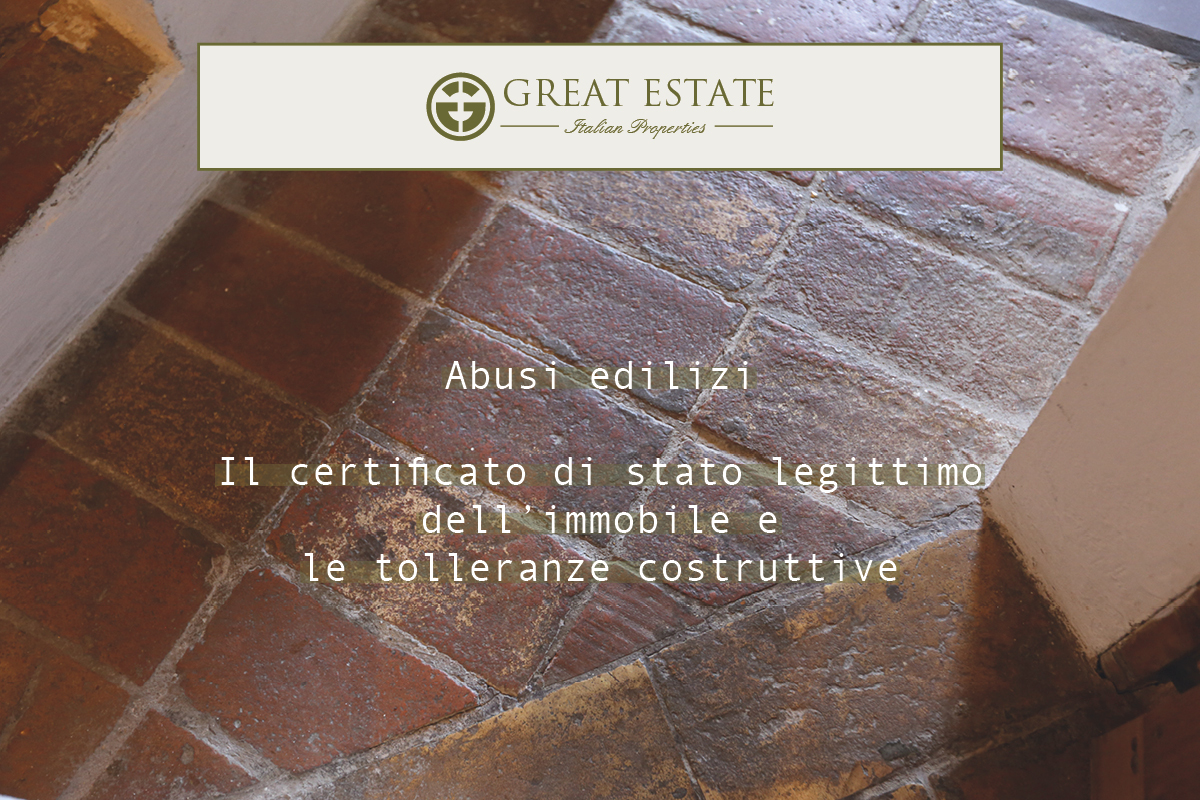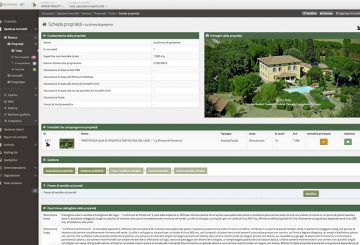Have you decided to buy a property and want to dispel any doubts about its urbanistic compliance? Do you want to sell your property and be sure that your deal will go through without running any risks related to building and urban planning irregularities? In July, a new tool was introduced. You can attach it to the deed of sale and use it to obtain tax benefits: the certificato di stato legittimo (certificate of the legal status) of the property.
Article 10 of the Decreto Semplificazioni (Law Decree 76/2020, converted into Law 120/2020), introduced new and peculiar measures in the fields of construction and real estate.
The aim pursued by the legislator is to put a brake on the sudden slowdown suffered by the real estate market in recent months, speeding up and streamlining building procedures, reducing costs for citizens and businesses, ensuring the recovery and qualification of the building stock, and developing urban regeneration processes.
But what are these measures?
The undoubtedly most important change is the introduction of the so-called”certificato di stato legittimo dell’immobile“.
Pursuant to the new paragraph 1-bis of Article 9-bis of the Testo Unico on Construction, this means the state “established by the permit that provided for its construction or by the one that governed the last building intervention that involved the whole building or property unit, integrated with any subsequent permits that authorized partial interventions“.
Basically, the concept of the “lawful state” of a building is intended to indicate the construction result resulting from work carried out in accordance with a building permit: either the one authorizing the original construction work or the one on the basis of which building work has been carried out subsequent to the original work.
For buildings constructed before 1 September 1967 (at a time when there was no obligation to obtain a building permit, and in respect of which a deed of sale substitute declaration is required), under the Decreto Semplificazioni the lawful status “is the one which can be inferred from the land registry information or from other probative documents, such as photographs, cartographic extracts, archive documents, or other public or private act, whose provenance can be demonstrated“.
The same criterion also applies where “there is a principle of proof of the authorization“, i.e. a clue, a trace of its existence, but no copy of the relevant document is available.
In short, this new instrument will become a sort of “license” or ‘passport’ for the building, which can be used in practice to verify its legality: the certificato di stato legittimo has this function and can demonstrate the legitimacy of the construction in a legally certain manner.
Before the introduction of this novelty by the Decreto Semplificazioni, the guarantee tool against possible building abuses was represented by a “declaration of building and town planning conformity” issued by a specialist.
Unlike the latter, which is obviously of a private nature, the new certificate of legal status is of a public nature:
in fact, although it is issued by a private qualified professional (such as an engineer, architect, or surveyor), it is sworn (with consequent criminal liability in the event of false declarations) and is now expressly provided for by law as a title attesting to the state of urban and building regularity of a property, thus assuming the function of an official certification of building conformity.
The other novelty is the introduction – in Article 10, paragraph 1, letter p of the Simplification Decree – of the concept of “building tolerances“.
In the event that the building does not faithfully reflect the project, the law grants so-called “constructive” or “executive” tolerances, i.e. those deviations from the building parameters that do not exceed certain limits in relation to what is stipulated in the building title.
In particular:
- Failure to comply with the height, detachments, cubage, covered area, and any other parameter inherent in the individual building units, contained within the limit of 2% of the measurements laid down in the planning permission.
- Geometrical irregularities, minor alterations to finishes, changes in the location of installations and internal works (unless in the case of buildings subject to historical and artistic constraints), which have occurred during work carried out for the implementation of building permits, provided that the usability of the building is not affected.
In conclusion
If you are planning to buy your dream home or sell your property, a certificate of legal status is not compulsory, but we at Great Estate Group strongly recommend you to have it and attach it to the deed of sale.
This is for several reasons.
First of all, it will securely certify that the building is free from building abuse, thus avoiding the risk of future disputes.
Secondly, it will be very useful if you want to take advantage of tax benefits: remember that tax benefits are not granted for buildings that have been illegally renovated.
Thirdly and finally, if, instead of selling, you intend to carry out an intervention, work, or building work on your property, the certificate can attest to its legitimacy, facilitating and speeding up the approval procedures for new works.
As mentioned in the introduction, the innovations introduced by the rules contained in the Decreto Semplificazioni, aiming to speed up and streamline building procedures and reduce the costs for citizens and businesses, contribute to resolving the eternal issue of the legitimacy and, therefore, marketability of buildings with minor discrepancies with respect to the building permit, subject to the clarification stated today on what tolerances are allowed.
If you would like to find out more about these important legislative changes, please contact our head office or your local Great Estate advisor.
Read also:




